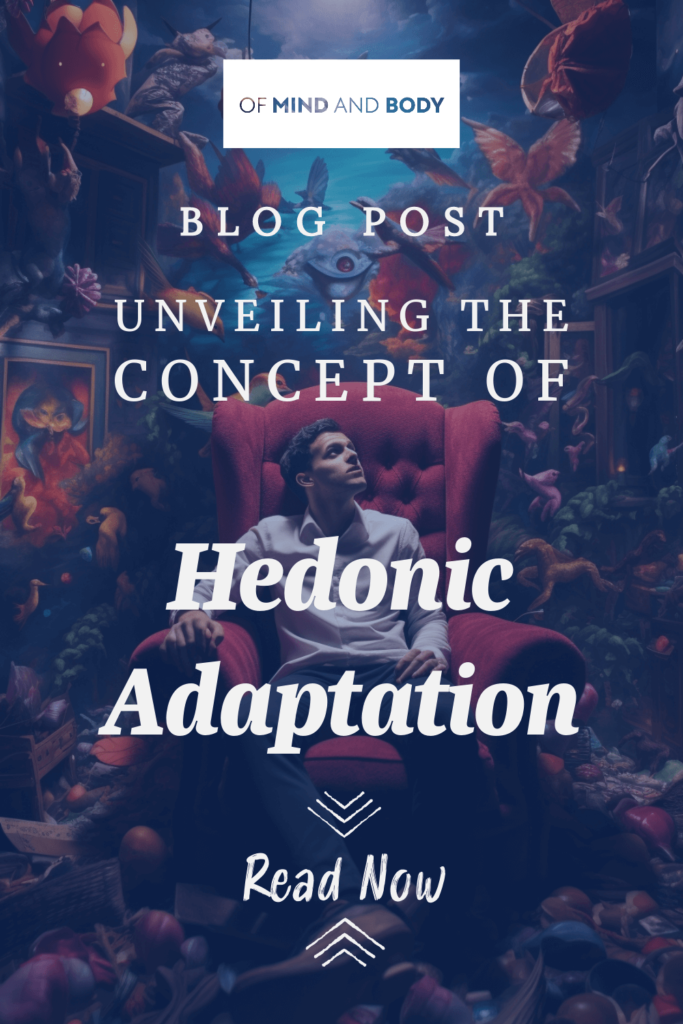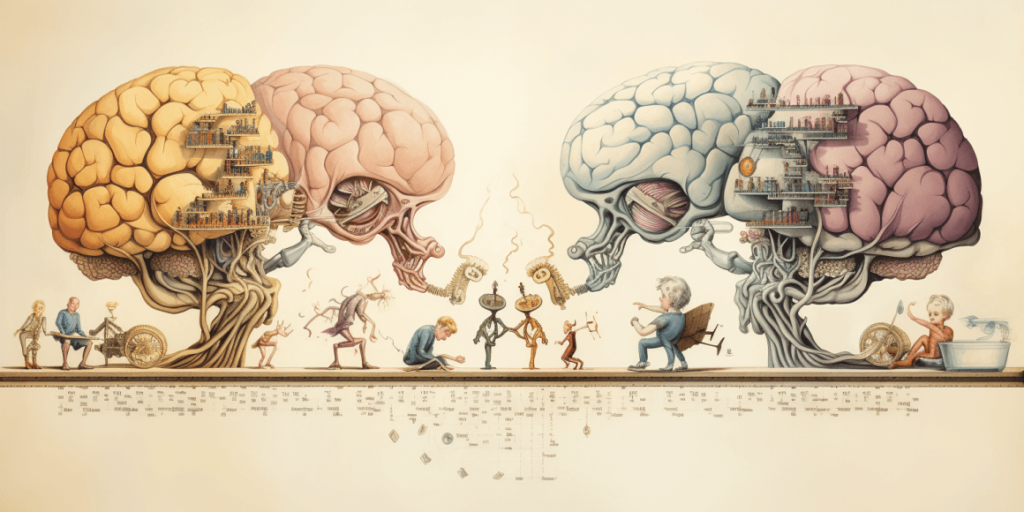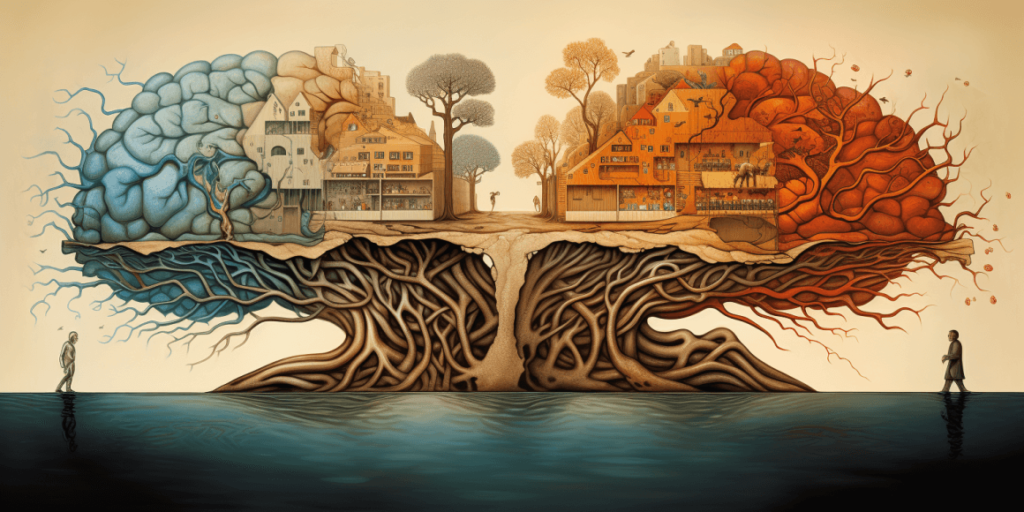
Have you ever pondered the intricacies of “Hedonic Adaptation” and how it shapes our perception of happiness over time? Why does the euphoria of a new job fades away after a few months? Or why the initial thrill of moving to a new city eventually gives way to routine? Perhaps you’ve questioned why, after achieving a long-sought goal, the elation seems to dissipate, replaced by a familiar sense of longing for something more. These are feelings we’ve all grappled with, moments where happiness feels fleeting and elusive. But what if the answers to these questions, the key to understanding our ever-shifting emotions, lies in a psychological phenomenon deeply embedded in our nature? Dive into this article, and you might just discover the intriguing world of hedonic adaptation and its profound impact on our quest for lasting happiness.
The Intriguing Nature of Hedonic Adaptation
Hedonic adaptation, a term that might sound like it’s straight out of a science fiction novel, is deeply rooted in our everyday experiences. It’s the phenomenon that explains why the joy of a new experience fades over time, leaving us yearning for the next thrill.
How Our Brain Perceives Happiness: A Brief Overview
Our brain is a complex organ, constantly evolving and adapting. When it comes to happiness, it’s no different. We’re wired to seek pleasure and avoid pain, but what happens when the scales of pleasure start to tip?
Understanding Hedonic Adaptation

The Science Behind Hedonic Adaptation
Dopamine, often dubbed the “feel-good” neurotransmitter, plays a pivotal role in hedonic adaptation. When we encounter a new, pleasurable experience, dopamine floods our system. But with repetition, this surge diminishes, leading to what we recognize as hedonic adaptation.
Why We Adapt: Evolutionary Perspectives
From an evolutionary standpoint, this adaptation was crucial. Our ancestors needed to be constantly alert and seeking more resources for survival. Being content could lead to complacency, which in the wild, could be fatal.
The Cycle of Desire and Satisfaction

The Initial Joy of New Experiences
Remember the exhilaration of riding a bike for the first time? Or the thrill of your first roller coaster ride? That’s hedonic adaptation in its infancy, where everything is fresh, and the world seems full of endless possibilities.
The Diminishing Returns of Pleasure
But as with all things, repetition breeds familiarity. The hundredth roller coaster ride doesn’t quite match up to the first. It’s not that the experience has changed; our perception has.
Examples of Hedonic Adaptation in Everyday Life
The New Job Euphoria
Starting a new job can be exhilarating. New challenges, new colleagues, and a fresh environment. But give it a few months, and the initial sheen starts to wear off. The once-exciting tasks now feel mundane.
Relationship Bliss and Its Evolution
The early days of a relationship, often termed the ‘honeymoon phase’, are filled with passion and excitement. But as time progresses, couples often find that the intensity wanes. It’s not love that’s diminished, but the novelty.
Hedonic Adaptation in Relationships
The Honeymoon Phase and Beyond
While the honeymoon phase is intoxicating, it’s the subsequent phases, filled with deeper understanding and companionship, that truly define a relationship. It’s about finding joy in shared silences and mutual growth.
Keeping the Spark Alive Amidst Adaptation
It’s not about recreating the honeymoon phase but understanding that love evolves. Introducing new experiences and shared adventures can reignite the initial passion.
The Double-Edged Sword of Adaptation

The Protective Role of Hedonic Adaptation
While it might seem like a buzzkill, hedonic adaptation serves a protective role. It ensures we don’t become overwhelmed with prolonged intense emotions, be it positive or negative.
The Challenge of Maintaining Long-Term Happiness
The quest for sustained happiness is a journey, not a destination. It requires introspection, understanding, and sometimes, a redefinition of what happiness truly means to us.
Factors Influencing the Speed of Adaptation
Personality Traits and Their Role
Some of us adapt faster than others. Personality traits, like being an optimist or a pessimist, can influence how quickly we adjust to new circumstances.
External Circumstances and Their Impact
Our environment, the company we keep, and even global events can influence our hedonic set point. A supportive environment can slow the speed of adaptation, allowing us to savor positive experiences longer.
Combating Hedonic Adaptation
Mindfulness: Being Present in the Moment
Mindfulness, the art of being present, can be a powerful tool against hedonic adaptation. By truly immersing ourselves in the moment, we can appreciate the nuances of our experiences.
The Power of Gratitude and Appreciation
Regularly counting our blessings and practising gratitude can shift our focus from what we lack to what we have, offering a fresh perspective.
Continuous Personal Growth and Learning
Challenging ourselves, learning new skills, and stepping out of our comfort zones can introduce the novelty that our brains crave, keeping hedonic adaptation at bay.
The Role of Materialism in Hedonic Adaptation

The Temporary High of Material Possessions
The joy of a new purchase, be it a gadget or apparel, is undeniable. But material possessions offer a temporary high, often leading to a cycle of buy-consume-repeat.
Beyond Materialism: Finding Lasting Joy
True joy lies in experiences, relationships, and personal growth. Material possessions might offer a quick fix, but it’s the intangibles that provide lasting happiness.
Positive Psychology and Hedonic Adaptation
The Principles of Positive Psychology
Positive psychology focuses on strengths, virtues, and factors that contribute to a fulfilling life. It offers insights into how we can lead lives filled with meaning and purpose.
Implementing Positive Psychology in Daily Life
From practising gratitude to fostering positive relationships, there are myriad ways to integrate positive psychology into our daily lives, offering a buffer against hedonic adaptation.
The Ageing Process and Hedonic Adaptation
How Age Influences Our Perception of Happiness
As we age, our priorities shift. What once brought joy might no longer hold the same allure. But with age comes wisdom, and the understanding that happiness is multifaceted.
Strategies for Ageing Gracefully and Happily
Embracing the ageing process, seeking new experiences, and fostering deep relationships can ensure that our golden years are truly golden.
Conclusion
Embracing the Ebb and Flow of Happiness
Happiness is not static. It’s an ever-evolving emotion, influenced by a myriad of factors. By understanding and embracing hedonic adaptation, we can navigate the highs and lows of life with grace and poise.
The Journey of Understanding and Overcoming Hedonic Adaptation
Knowledge is power. By delving deep into the concept of hedonic adaptation, we equip ourselves with the tools to lead a life filled with sustained joy and contentment.




3 Responses